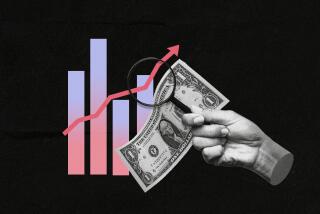Old and Broke, an American Tale : RAND study paints a dark picture of retirement with little or no savings
- Share via
A demographic time bomb is ticking for Americans as they age. The hard reality is that--by choice, circumstance or perverse public incentives--few Americans save enough for retirement. Half of all whites over 70 have only $10,500 in assets apart from home equity, and half of elderly blacks and Latinos have absolutely nothing in the bank, living only on Social Security. These are some of the findings of a new RAND Corp. study, which should be required reading in the national debate on the future of the shaky Social Security and Medicare programs and on tax and pension reform.
The largest factors in saving are good health, marriage and basic hard work. Inheritances, it turned out, contribute only a small fraction of wealth at retirement today. Because of the Depression, the parents of most Americans nearing retirement today were less prosperous than their children.
Unsurprisingly, the study found wide disparities in personal wealth, particularly between whites and minorities. Unstated but certainly a factor in explaining racial or ethnic differences are the lingering effects of discriminatory practices that depressed wages for minorities.
According to the RAND author, James P. Smith, current welfare and other public programs based on a person’s means are a major disincentive to saving money. “Current public policy,” he writes, “has over-annuitized our set of transfer programs since many of these households would prefer more money now at the expense of a little less in the future.”
Clearly Social Security cannot long continue as the main source of retirement income for so many people. Depressingly few salaried workers take advantage of a major alternative, the 401k plans offered by employers to save while deferring taxes. The RAND researchers favor a national “consumption” tax to encourage savings, by taxing spending and thereby exempting income on savings and investment from taxation.
That may or may not be the solution, for it raises difficult philosophical questions of equity. But RAND correctly focuses on the urgent need to encourage all Americans, rich and poor, to save for their later years.
More to Read
Sign up for Essential California
The most important California stories and recommendations in your inbox every morning.
You may occasionally receive promotional content from the Los Angeles Times.













